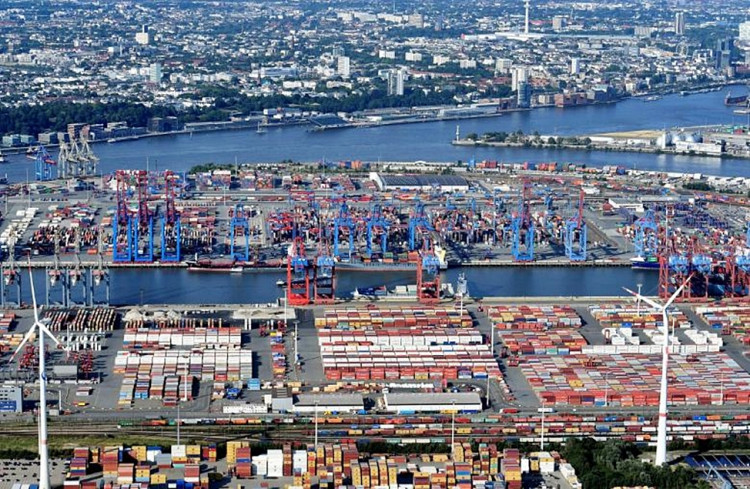Germany again stands to be embarrassed by its continuingly large current account surplus -- the world's largest -- and must act to prevent this anomaly from harming the wider world economy.
Calls for Germany to do something to stop the growth of its huge current account surplus will resonate with the announcement the country will likely post a $299 billion surplus at the end of the year. As in the previous surplus years, Germany's surplus in 2018 can be traced to the large volume of goods it exports.
Germany's trade in goods contributed the most to the huge surplus, accounting for over $257 billion Income from assets contributed another $81 billion to the surplus. On the other hand, Germany is expected to experience a $23 billion deficit in services, according to IFO, Germany's most influential economic research agency. IFO stands for the Institute for Economic Research. It is based in Munich.
Germany's surplus on trade in goods is due to lasting strong demand from foreign customers, said IFO expert Christian Grimme. Germany's strongest export markets are the eurozone, the wider European Union (EU) and the United States.
Germany's surplus was much larger than Japan and The Netherlands in the IFO ranking. The former has a surplus of $200 billion and the latter, $110 billion. A country's current account is an important economic indicator since it is the sum of a country's balance of trade (imports and exports) and net income (or losses) from international investments.
Germany's surplus still exceeds the six percent threshold deemed as sustainable over the long term since it is plainly obvious that one country's surplus is another's deficit and debt. The threshold was set by the European Union and International Monetary Fund.
In an unusual public statement, the IMF through chief economist Maurice Obstfeld is urging Germany's political leaders to do something to slow down the country's excessive surpluses.
These positive numbers for Germany will again ignite criticism from other advanced economies. The United States under its protectionist president, Donald Trump, has slammed Germany for its trade and general account surplus.
Trump says Germany is one of the main reasons (along with China) for the U.S.' $460 billion trade deficit in 2017. To lower the American deficit, Trump has threatened to impose tariffs on foreign automobiles in the U.S. Motor vehicles is Germany's most important export item.
Berlin rejects the complaint Germany is flooding the world with its goods and says it's only superficially true. It said German companies use their capital surplus to finance worldwide investments. German firms employ more than a million people in China and more than 850,000 in the U.S.






